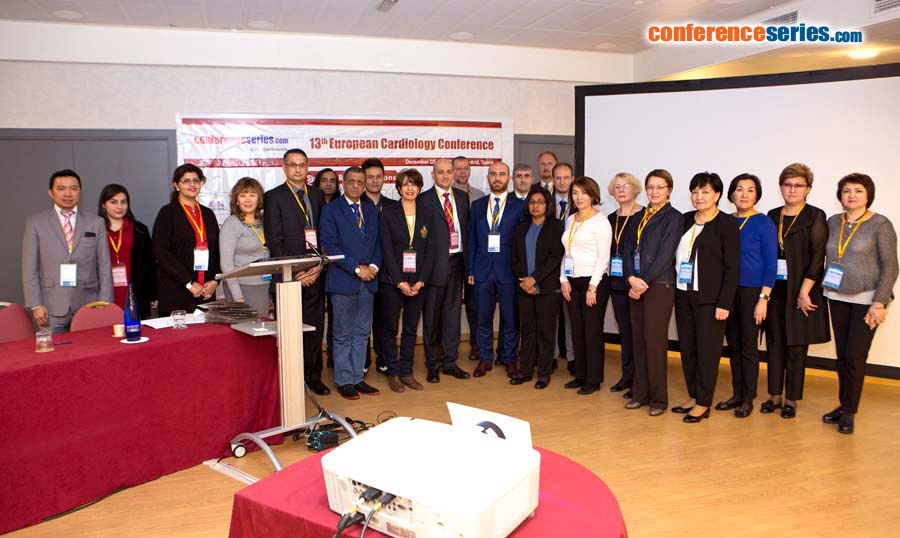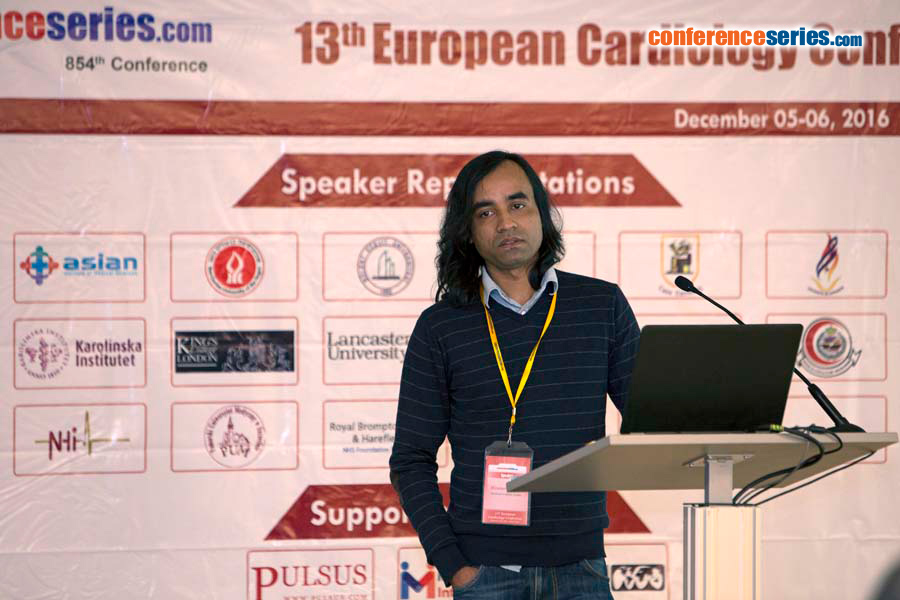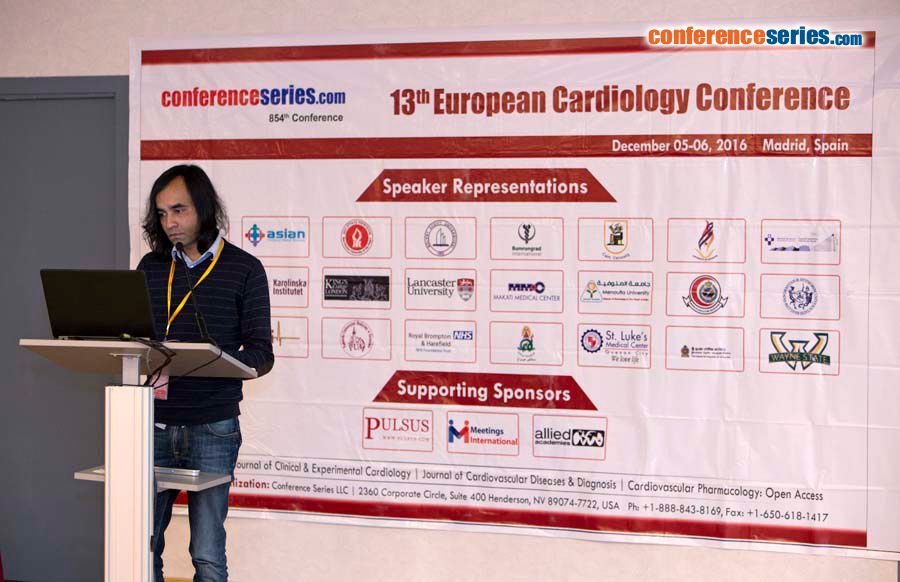
Mizanur Rahman
Karolinska Institute, Sweden
Title: HSP 60 as a T cell antigen activates peripheral blood and atherosclerotic plaque T-cells
Biography
Biography: Mizanur Rahman
Abstract
Cardiovascular diseases are defined as disorder or diseases of the heart and blood vessels. Atherosclerosis is one of major causes of cardiovascular disease development. Immune cells, including T-cells play an important role in the disease pathogenesis. Heat shock protein 60 (HSP 60) has been shown to be involved in cardiovascular diseases. This protein is expressed in response to heat or toxic effect to the cells, but elevated level of HSP 60 can be deleterious, including heart failure. However, antigenicity and immune response against HSP 60 are unclear.
Here, HSP 60 stimulated dendritic cells (DCs) were co-cultured with autologous peripheral blood T-cells. In addition, DCs generated from peripheral blood of atherosclerotic patients were also stimulated and co-cultured with atherosclerotic plaque T-cells. Further, HSP 60 stimulated DCs were co-culture with T-cell with or without anti-HLA II blocking antibodies. Immunophenotyping and cytokines profile was measured by flow cytometry and ELISA respectively.
We showed that HSP 60 induced DCs activation and Th1 cell activation through DCs, also induced inflammatory cytokines secretion, where the affect was inhibited by HLA-II blocking.
Studies suggest HSP60 as a co-stimulatory factor but our observation shows that HSP 60 is also a T cell antigen and it activates Th1 cells in atherosclerotic plaque.




